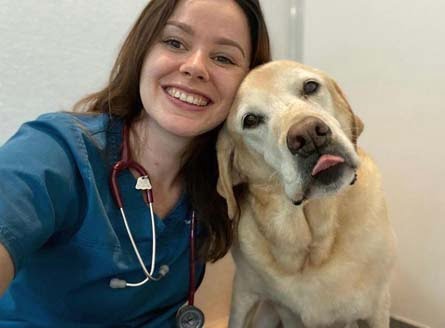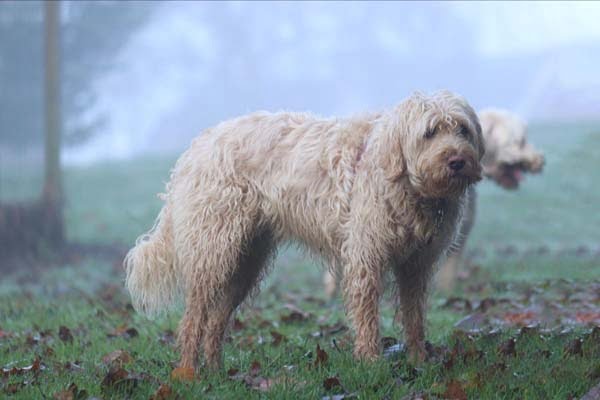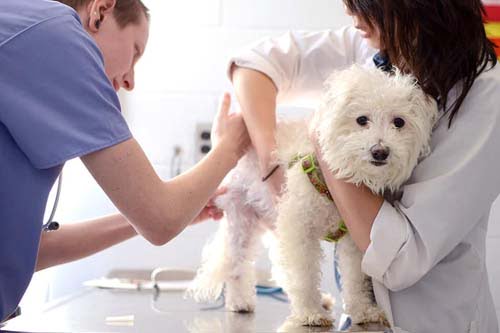Keeping you informed
Newsletter April 2022

Practice News

Autumn is coming to a close, and it doesn’t look like the wet weather is going to stop any time soon! Dr Gretta Howard has written a helpful article: “Dangers to your pet in rainy weather”, to ensure we are all up to date on how to keep our furry friends safe throughout this wet season. Also, remember that Mother’s Day is right around the corner on Sunday 8th of May! Be sure to express your thankfulness to those special people in your life with a present, a card or a snuggle – pets included!
After almost 10 years with us, our incredibly dedicated Nursing Manager, Beck, will be leaving us at the end of April with an exciting move to country NSW for her partner’s work. She has been such a driving force at Turramurra Veterinary Hospital, considered as part of the furniture here, and we are sure our customers (two and four-legged!) will be sad to see her go, just as we are. If you haven’t had a chance to say goodbye, she will be on duty on and off up until the 30th of June then will continue in a remote support position.
We had some great questions come through for our Ask the Vet section of our e-news, so remember if there is a question you really want to know the answer to about your pet, email it through to info@turramurravet.com.au to be included in our next edition.
The easiest way to book a veterinary consultation is to Book Online via our website at www.turramurravet.com.au or click here. Our vets are also happy to conduct a telehealth consultation where suitable, to allow extra flexibility for clients, particularly if you are isolating at home.
Dangers for your Pet in Rainy Weather
Author: Dr. Gretta Howard – Senior Veterinarian

Rainy weather is inconvenient for humans, cats generally hate water and dogs don’t get walked as often in the rain, but there are other aspects to rainy weather to be aware of – an increase in parasites including leeches, snails and slugs, which are potentially life-threatening if eaten, and leeches and microscopic protozoal parasites, such as Giardia, found in soil.
Snails and slugs carry nasty parasites that can harm your pet if eaten
Did you know that it can be dangerous for your dog to eat snails and slugs? In fact, every year at Turramurra Veterinary Hospital, our vets treat at least one case of a nasty disease called angiostrongylosis, which is caused by a parasite found in snails and slugs.
What causes angiostrongylosis?
Snails and slugs act as an intermediate host for the rat lungworm parasite, Angiostrongylosus cantonensis. Snails and slugs eat rat faeces containing the larval worms and then the parasite develops further inside snails and slugs. Rats eat slugs and snails and the parasite then moves from the rat’s intestines and enters the bloodstream, then finally some of the parasites enter the central nervous system, including the brain. In rats, the parasite rarely causes any damage to the brain, but if these infected snails or slugs are ingested by another species such as your dog, or even children, the outcome is a lot more serious.
What are the clinical signs to look out for?
If the rat lungworm ends up in the wrong host, including dogs or children who have eaten infected snails or slugs, the parasite migrates through the central nervous system’s spinal cord and brain, causing severe pain and inflammation that can lead to lameness, severe back pain, paralysis, incontinence, brain and behavioural changes, coma and death.
Click on the following link to read the full article on the dangers for your pet in rainy weather.
To Greet or Not to Greet? Managing Interactions with Other Dogs While on the Lead
Author: Katie Bedrossian – Pet Behaviour Consultant
Dogs are naturally social animals and when positively introduced to other dogs as a young pup, they usually enjoy the company of their own kind.
However, unlike the past where dogs were let out the front door each morning to meet up with their doggy friends in the neighbourhood, exploration outside your property gates is now restricted, which is important for safety. So nowadays, are greetings on a lead the best way to socialise a dog?
On lead greetings:
- Are not natural. Natural greetings involve a choice to approach, space to retreat, sniffing, circling and advancing to play (all of which dogs on lead can’t do properly).
- Encourage pulling (not just to other dogs but for the rest of your walk).
- Encourage jumping up.
- Increase hyperarousal and frustration (as dogs can’t circle or play).
- Increase anxiety (lack of escape).
- Decrease social skills (causing excitable dogs to ignore cut off signals from other dogs and anxious dogs to avoid or react).
When are greetings on the lead appropriate?
- When both owners want the interaction to occur.
- When both dogs want the interaction to occur (relaxed wiggly bodies, not an ounce of tenseness or frozen body language).
- When both dogs approach each other on loose leads (from point of sight to end of greeting).
- When the greeting will be a sniff and greet only, not play.
Click on the link to read more about managing interactions with other dogs while on the lead.
Pet Of The Month: Sherra
Author: Freya Britt-Lewis – Customer Care & Pet Health Care Writer

Meet the lovely Sheera!
A personal favourite of one of our Customer Care Team members, Claire, Sheera is a sweet, happy-go-lucky Rottweiler puppy who has taken all of us at Turramurra Veterinary Hospital by storm. When she isn’t with her lovely family, Sheera can be found at our Puppy Preschool classes learning how to play happily with other puppies her age and wooing the staff here with her sweet eyes.
We cannot wait to watch her grow up!
Staff Profile: Freya – Customer Care Team
1. What do you enjoy the most about your role?
Short answer: the animals. Long answer: helping people and animals. As a receptionist I am kept busy and active, making connections with both our clients and their four-legged friends, whilst working for a cause I am proud to represent. I would say my favourite pets are almost exclusively made up of ‘Golden Oldies’; those with countless stories and lessons to teach if you just look hard enough. There is no better place to create relationships with pets like these than sitting at the front desk and welcoming them into the clinic.
2. How did you develop an interest in writing about pet health care?
My father was an avid reader of Gerald Durrell, and spent the majority of his life working towards his own career as Senior Keeper of Australian Mammals at Taronga Zoo while following in the footsteps of his idol. It’s safe to say this passion passed directly onto me, with countless hours of my youth spent hand raising wildlife and caring for our own menagerie of animals in the form of dogs, cats, birds, and one gorgeous horse. Growing up, all I did was read and watch scientific books and documentaries, and writing became a pretty apparent hobby when I would spend my holidays making up stories on my mother’s laptop instead of actually holidaying! It is amazing being able to do it as a part of my work, on topics that are meaningful to myself and helpful to others.
3. Who are your furry family members?
I have two beautiful rescued greyhounds; Rocky and Bounty, and a chestnut quarter horse, Deputy. Rescuing my animals when I can is important to me, thanks to the adoption of my now passed Tenterfield Terrier, Patch, in 2008. He was the best of me, and one of the most precious memories I wish to honor continuously throughout my life.
Feline Friends: Lilies are extremely toxic to cats!
Author: Freya Britt-Lewis – Customer Care & Pet Health Care Writer

In preparation for Mother’s Day, it is important to know what not to include in your flower selection if you have a cat in your family home. Lilies are a beautiful and popular addition for any arrangement, but cat owners everywhere should be aware of the extreme danger they hold for your feline family member if ingested.
All species of lily flower: such as easter lilies, lily of the valley, calla lilies, and peace lilies, are extremely toxic to cats. The entire plant is poisonous, and in some lily species, even a small nibble could potentially be deadly. Cats are fastidious groomers, so if they brush up against a lily flower and some of the yellow powdery pollen gets onto their coat and is subsequently licked off, this is poisonous.
Symptoms of lily toxicity include:
- Drooling
- Vomiting
- Loss of appetite
- Acute kidney failure
Taking measures to ensure no contact is possible between the plant and your beloved cat could be life saving. If having lilies is a must, keep them high and out of reach where your cats can’t get to them. But your best bet for prevention is simply removing them from your property entirely!
If you see or suspect your cat has ingested part of the plant, veterinary intervention is paramount to a happy outcome. Bring your pet in swiftly along with a photo of the ingested lily species in order for our team to identify the lily species and treat your cat accordingly. Our team will usually recommend decontamination through inducing vomiting and bathing as well as blood and urine tests. As a precaution, cats are often placed on intravenous fluid therapy to support their kidneys.
So remember, the sooner that your cat receives veterinary assessment and treatment for lily intoxication, the better the outcome will be.
Innovations: Pre-anaesthetic Blood Screening

At Turramurra Veterinary Hospital, our pathology suite includes the ability to run blood tests on site and get immediate results. In addition to blood testing when a pet is unwell, there are also wellness screens available, which are helpful in finding abnormalities that are not possible to detect on physical examination. One of the tests available to clients is a pre-anaesthetic blood screen for their pet.
What does a pre-anaesthetic blood screen test for?
The pre-anaesthetic blood test consists of both biochemical parameters (organ health) and haematology (blood cells). Biochemistry includes kidney parameters (urea, creatinine) and liver enzymes (ALT, ALP), glucose and protein levels. Haematology includes red and white blood cell counts as well as platelet counts. If the red blood cell count is low, this is indicative of anaemia, whereas if it is elevated, dehydration may be present. The white blood cells can be elevated if there is inflammation or infection present.
My pet is young and physically healthy, so should my pet have a pre-anaesthetic blood test?
A pre-anaesthetic in a young healthy animal is an elective test that owners can request rather than a requirement for a procedure to go ahead. The advantage is that this blood test provides a baseline so that we know what your pet’s normal values are, providing a reference for comparison if he or she becomes unwell in the future.
In rare instances, a congenital issue or disease condition is uncovered, such as a portosystemic shunt, kidney disease or anaemia. In these cases, the owner is alerted promptly as to the clinician’s recommendations.
Click on the link to learn more about pre-anaesthetic blood screening.
Ask the Vet!
Author: Dr. Gretta Howard – Senior Veterinarian
- Anxiety in companion pets – how can I treat it?
Anxiety is a clinical condition and can be either present all the time, or triggered by certain events such as storms or separation from their owner. Treating anxiety is a lot more complex than simply providing more training. Medication, where indicated, will usually only be about 25% of the solution. Instead, an accurate history needs to be taken and a veterinary assessment is important to determine whether there is a medical issue underlying the cause of the anxiety, particularly if the anxiety has developed suddenly or in old age. One of the most important aspects of managing anxiety in pets is the changes that can be made to your pet’s routine or environment (known as environmental modification), including recommendations about the way family members interact with the pet. The Turramurra Veterinary Hospital team can help your pet with anxiety. To find out whether to book in with a Senior Vet or our Pet Behaviour Consultant, Katie Bedrossian, phone 9988-0198 to speak with our Customer Care Team. - It was recommended to me that my dog has a kennel cough vaccination but my dog never goes into kennels so is it really necessary?
Out of all the diseases we vaccinate for, the most common infection we see is kennel cough and most of the dogs that come in with this issue have not been to a kennel. In fact, the disease is actually called Canine Infectious Tracheobronchitis and it is caused by a combination of a Parainfluenza virus and Bordetella bacteria, which combine to give your dog a nasty throat or chest infection. Dogs that have been vaccinated for this disease tend to have much milder clinical signs than those that are unvaccinated, so it is recommended that this vaccine is included at the annual veterinary health exam. - How can I keep my older pet comfortable?
Like humans, our older dogs and cats get stiff joints and often need anti-inflammatories and pain relief to manage. Firstly, if you notice your dog or cat has developed a limp, has started to walk stiffly or even has difficulty getting up in the mornings, then a veterinary consultation is important so that your pet’s pain can be properly assessed and a management plan formulated. A course of Synovan injections is often a helpful starting point for older pets with arthritis.These are a course of 4 weekly injections which assist with cartilage health and joint inflammation and can be repeated every 6 months. In addition to these injections, oral medication can be prescribed that owners can administer either on a daily basis or as required.
We hope you have enjoyed our newsletter. We are always happy to receive feedback from our clients, so feel free to send a message to our Business Manager, Elyse Staber, via email to manager@turramurravet.com.au as we always strive to improve our service. Happy Easter!
Warm regards, your locally family-owned Turramurra Veterinary Hospital team.

